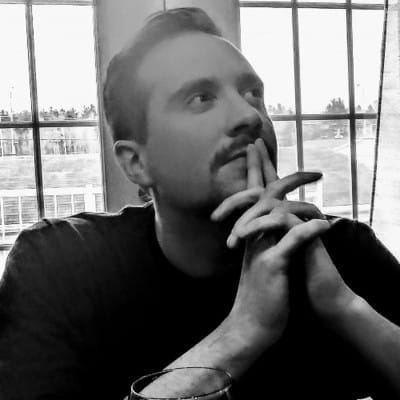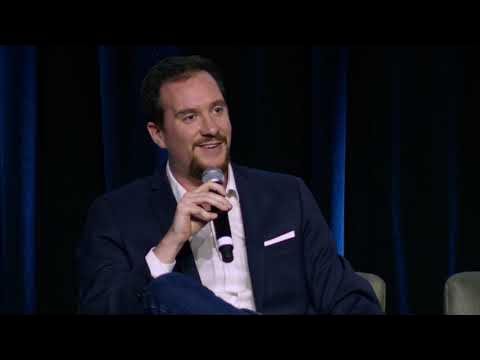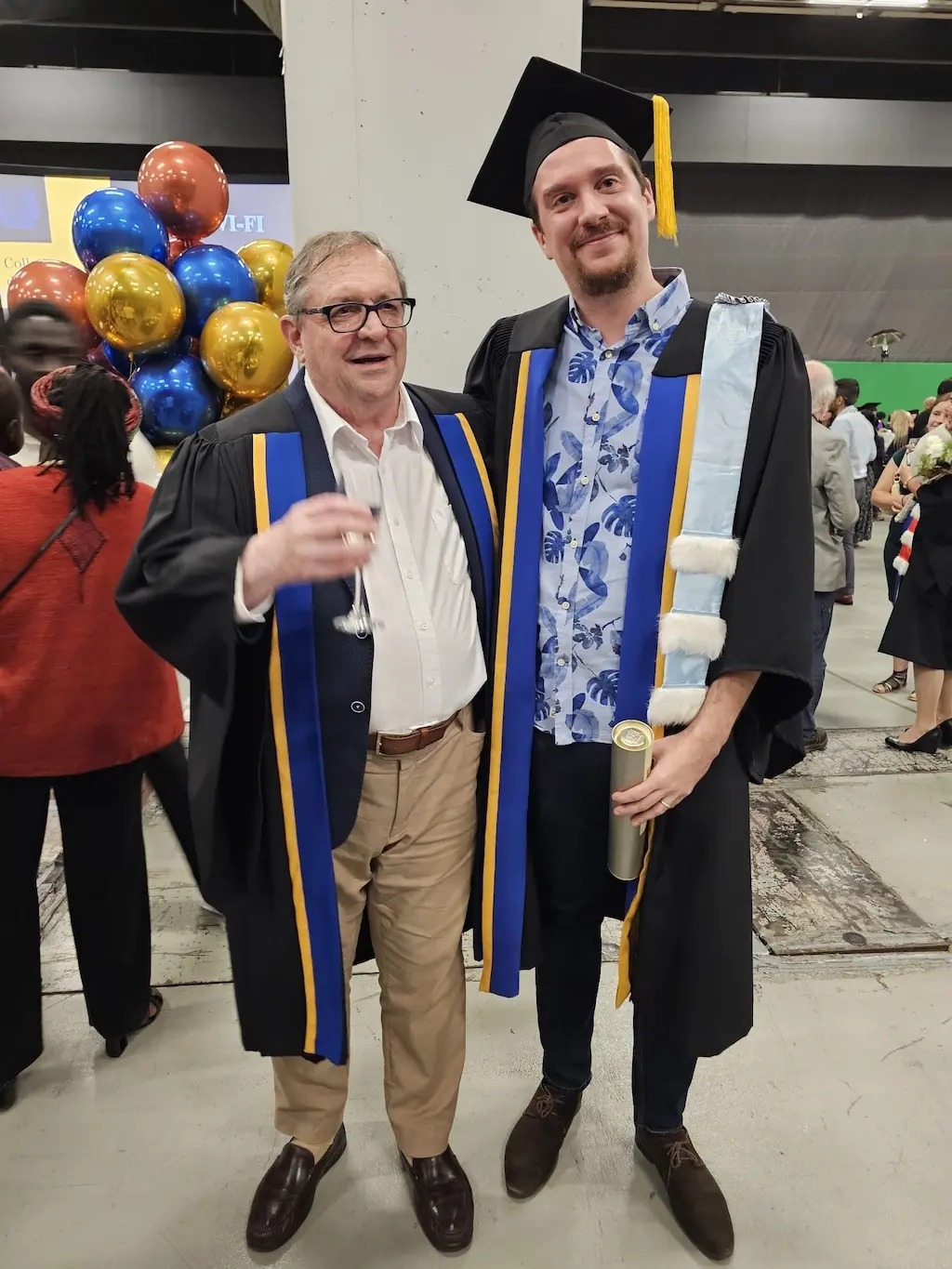From Dropout to Doctor: How I Turned My Life Around Through Academia
He used to think school just wasn’t for him. He struggled, dropped out, worked odd jobs across different countries, and never imagined a future in academia.

About Me
Dr Pierre Tircher is an Associate Professor at the University of Montreal, specializing in Labour Economics.
Introduction and Background
What inspired you to pursue a Ph.D.? Was there a defining moment or motivation behind your decision?
I struggled with school when I was young and really disliked it. Finishing high school in Belgium was quite painful for me. At 18, I thought I would never pursue higher education. In fact, I attempted to enroll at a university in Belgium twice, but each time, I couldn't stay more than a few weeks before dropping out.
To make something of my life, I decided to travel to other countries, starting with Australia, where I spent a year working in various fields, mainly restaurants and bars. I continued this journey in several countries over the following years, working in menial jobs and not having much fun.
Eventually, I arrived in Montréal, planning to stay for a year and reconnect with people I had met during my previous travels. This time, I fell in love with Canada and Montréal and quickly wanted to stay longer than a year. Immigration in Canada is challenging, especially without a college diploma or specific skills. To stay, the easiest way was to attend university. I applied to a microprogram initially because my poor high school results prevented me from being considered for a bachelor's program.
At first, I was scared because of my history with the education system but maybe because I grew up and gained maturity, I truly enjoyed classes and achieved excellent results, which enabled me to apply for a bachelor's degree in business administration.
During my first year of the bachelor's program, I was drawn to academic work. I contacted a few professors in my department, offering my services for free to assist with their research or teaching. Two of them accepted, which helped confirm my interest in academics.
From that moment, I knew I wanted to pursue a Ph.D. Due to my excellent grades throughout my bachelor's program and my demonstrated potential for research, my department allowed me to go straight to a Ph.D. from the bachelor's without needing to complete a master's degree. This was a bit risky because if I failed to defend my thesis after a few years, I would only have a bachelor's degree, but my determination was strong.
What was your research area, and what made you choose the Ph.D.?
During my bachelor's degree, I built a strong relationship with my labour economics professor, serving as his teaching assistant for two years and assisting him with research and the new edition of his textbook. I truly enjoyed those classes where I could apply the mathematics I had painstakingly learned during high school. Naturally, I developed a deep interest in labor economics and how public policies can shape societies and influence lives. Gaining a better understanding of policies and their effects on people's lives motivated me to pursue a Ph.D.
How did you prepare for your Ph.D.? (e.g., choosing a program, advisor, or research area)
Since my department agreed to let me join their Ph.D. program without requiring a master's degree, the choice was quite natural. Otherwise, I would have likely chosen another university, most probably an English-speaking one in Montréal.
Challenges and Learning Moments

What obstacles did you face during your Ph.D. course, and how did you navigate them?
In Canada, before starting to write your thesis, the first two years of a Ph.D. program are dedicated to seminars in various subjects within your field, followed by a comprehensive exam where you need to synthesize this knowledge. That part wasn't too challenging for me since I enjoy reading and writing.
The most challenging part of my Ph.D was working on a thesis’s proposal. This was particularly difficult because I had limited experience with the scientific process, not having completed a master's degree. I wrote a first proposal but it wasn’t ready at all and my first meeting with my jury was so rough it made me reconsider my decision to pursue a Ph.D.
I then took a two- to three-month break, focusing on my personal life, friends, hobbies, and social engagements.During this time, I continued reading studies related to my research interests and discussing them informally with my thesis supervisor and colleagues, but I didn't invest much time in writing or working concretely on my thesis. Despite many doubts, I reminded myself how unhappy I was before joining the academic world and how much I wanted to avoid returning to the labor market.
After the break, I resumed writing, structuring my thoughts more coherently, and identifying better datasets and methodologies. It wasn't an easy process, but after several back-and-forths with my supervisor, we finally developed an acceptable new proposal to submit to the jury. The second meeting to discuss the proposal went much better than the first, and they approved it.
That first meeting, which could be seen as a failure, taught me a lot about the writing process and the importance of making your ideas understood by others. Most importantly, it helped me gain confidence. My initial proposal was scattered, presenting too many ideas. The second proposal was more focused on a key research question, making my train of thought easier for the jury to follow.
My continued efforts allowed me to produce robust preliminary results, which I could share with my peers at scientific symposiums. Those experiences kept me motivated to continue writing my thesis and improve my work.
Achievements and Highlights

What was your proudest moment or achievement during your Ph.D. journey?
When I finally defended my thesis, everything went great. The jury honored me with the highest distinction and a spot on the honor roll for that year. This was undoubtedly the proudest moment of my journey, especially since I walked into my thesis defense thinking my work wasn't that great. Going from being a struggling student and dropout to a Ph.D. holder was quite a ride.
After the Ph.D.
What do you do? How did you reach the place where you are?
Since defending my thesis, I have done everything in my power to be competitive in applying for a teaching position. In Canada, every student knows it's really difficult to secure a teaching position without publishing and completing at least one postdoctoral internship after your Ph.D. So that's what I did. I did a postdoc at another university in Montréal, allowing me to apply for positions close to my field of interest. Additionally, I serve on the editorial board of the Canadian Journal on Aging, edited by the University of Cambridge, which helps me strengthen my network and stay updated on recent research in my field.
This hard work paid off because, one year after my thesis defense, I was accepted for a position as an associate professor at the University of Montreal, which was my Plan A.
How did completing your Ph.D. change your perspective on the world or your field of research?
Completing a Ph.D. was certainly a huge challenge that taught me patience and discipline, and it definitely humbled me. It showed me that there is no single truth and that a research object can be analyzed in various ways, depending on how the question is framed and the theories applied.
Looking back, what do you think were the most important skills or traits that helped you succeed?
It's hard to pinpoint one specific thing, but I would say that my passion for academic work and the knowledge that I would be miserable in a traditional job on the labor market certainly gave me the tenacity to push through.
Advice for Current and Aspiring Ph.D. Students
If you could go back in time, what advice would you give to your younger self before starting your Ph.D.?
Don't underestimate the time required for everything during your Ph.D. From the research itself to administrative procedures (such as grants, funding, and evaluation processes), you need to plan carefully to avoid disappointment or impatience.
What strategies would you recommend for overcoming challenges and staying resilient? & What tools did you use to stay productive and manage your workload during your Ph.D.?
It's ideal to regularly think about your research and work on it, whether through reading, producing results, or actively writing your thesis. However, don't feel guilty for not working all the time. Many students feel they should write non-stop, but having downtime can help digest the workload. You should never work without genuinely wanting to do it. If you feel like you need a break, take as long a break as you need.
It sounds cliché, but I feel like some of my best ideas came while doing something else other than actively working on my research, like cooking, taking a shower, or playing video games. Combining regular work with necessary breaks ensures that you're immersed in your thinking, keeping it clear and the ideation process healthy.
Do you have any books to recommend for students?
For anyone interested in pursuing an academic career, the book "The Professor Is In" by Karen Kelsky was helpful for me. It guided me through the transition from Ph.D. student to postdoc and assisted me in the process of getting recruited by a university.